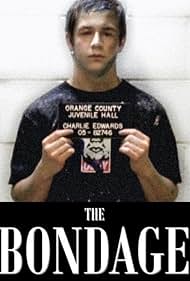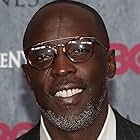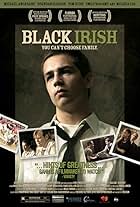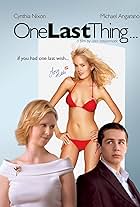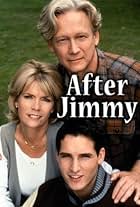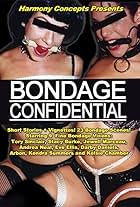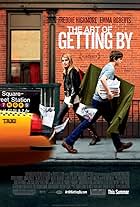A 16 year old suburban kid escapes an abusive home only to find himself entangled in the California Juvenile Justice system and a psychiatric ward.A 16 year old suburban kid escapes an abusive home only to find himself entangled in the California Juvenile Justice system and a psychiatric ward.A 16 year old suburban kid escapes an abusive home only to find himself entangled in the California Juvenile Justice system and a psychiatric ward.
Michael Kenneth Williams
- Willie
- (as Michael K. Williams)
J.J. Soria
- Mexican Inmate #2
- (as Joseph Julian Soria)
- Director
- Writer
- All cast & crew
- Production, box office & more at IMDbPro
Storyline
Did you know
- Alternate versionsThere is a Director's Cut
Featured review
I was lucky enough to see the world premiere of this film at SXSW just the other day. I knew little about the movie but wanted at least one screening under my belt at an actual film festival. The screening was in the morning, so I ended up talking about it to everyone around me the rest of the day. It's been the highlight of the trip, other than meeting the cast and director.
In the opening moments of Bondage, a first time feature for directer Eric Allen Bell, young Charlie Edwards is arrested for vandalism and arson. The corrections industry in California is uninterested in addressing his emotional trauma; they just want to store his body for the course of his four year sentence. To escape the harassment of the gangs and the corrections officers, Charlie feigns insanity and moves to a psychiatric hospital. The doctors push drugs on top of drugs to nullify everything in Charlie's world. And all Charlie wants for himself is to live his own life without the oppressive rules made up by other people.
The narrative flexes the sequence of events, seamlessly incorporating past, present and future moments into a coherent storyline. There are moments when the film explores the tactics Charlie's parents would use to enforce their standards of control, including a particularly harrowing sequence where they drag him into the bathroom and force his hands to scrub out the tub as he pleads for mercy. A character late in the film makes this observation: parents who box their teen into a corner with rules and emotional manipulation are so shocked when he comes out fighting, it's no wonder they call him crazy.
Michael Angarano in the role of Charlie had a formidable task carrying the film, and he excels at giving the character a sense of tragedy. By mere body posture and softly spoken lines, we see Charlie as a damaged and frightened person, who understands little about why he's so deeply interred in a system that cares little for his well being. Illeana Douglas and Eric Lange as Charlie's parents are haunting with the complexity they bring to what is essentially the forces of old and evil. The film does not forgive them, but it creates in them real people, who do both wonderful and terrible things. Just like Charlie. It would be an oversight not to mention the adorable Mae Whitman as another product of an abusive home. Her character may have the least amount of screen time, but her impact on the film's final thirty minutes could be felt for hours after the credits rolled.
There's a famous poem by Phil Larkin called "This Be The Verse." It ran through my head the entire time I sat in the theater. IMDb won't allow me to post it here due to the expletives it contains, but it's not hard to find after a quick search on Google.
Go see this movie.
In the opening moments of Bondage, a first time feature for directer Eric Allen Bell, young Charlie Edwards is arrested for vandalism and arson. The corrections industry in California is uninterested in addressing his emotional trauma; they just want to store his body for the course of his four year sentence. To escape the harassment of the gangs and the corrections officers, Charlie feigns insanity and moves to a psychiatric hospital. The doctors push drugs on top of drugs to nullify everything in Charlie's world. And all Charlie wants for himself is to live his own life without the oppressive rules made up by other people.
The narrative flexes the sequence of events, seamlessly incorporating past, present and future moments into a coherent storyline. There are moments when the film explores the tactics Charlie's parents would use to enforce their standards of control, including a particularly harrowing sequence where they drag him into the bathroom and force his hands to scrub out the tub as he pleads for mercy. A character late in the film makes this observation: parents who box their teen into a corner with rules and emotional manipulation are so shocked when he comes out fighting, it's no wonder they call him crazy.
Michael Angarano in the role of Charlie had a formidable task carrying the film, and he excels at giving the character a sense of tragedy. By mere body posture and softly spoken lines, we see Charlie as a damaged and frightened person, who understands little about why he's so deeply interred in a system that cares little for his well being. Illeana Douglas and Eric Lange as Charlie's parents are haunting with the complexity they bring to what is essentially the forces of old and evil. The film does not forgive them, but it creates in them real people, who do both wonderful and terrible things. Just like Charlie. It would be an oversight not to mention the adorable Mae Whitman as another product of an abusive home. Her character may have the least amount of screen time, but her impact on the film's final thirty minutes could be felt for hours after the credits rolled.
There's a famous poem by Phil Larkin called "This Be The Verse." It ran through my head the entire time I sat in the theater. IMDb won't allow me to post it here due to the expletives it contains, but it's not hard to find after a quick search on Google.
Go see this movie.
- Jon
Details
Box office
- Budget
- $1,700,000 (estimated)
- Runtime1 hour 40 minutes
- Color
- Aspect ratio
- 1.85 : 1
Contribute to this page
Suggest an edit or add missing content

